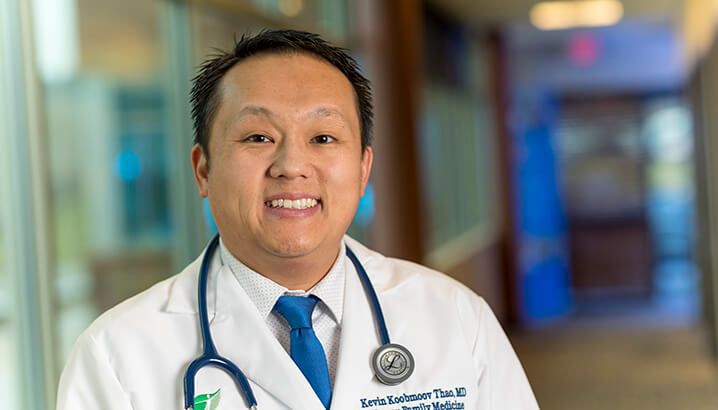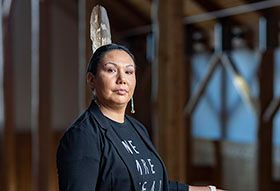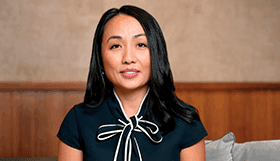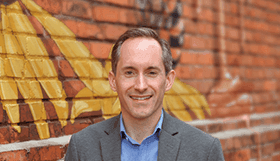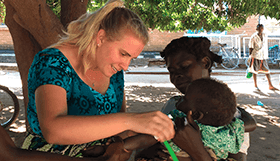UW Majors: Medical Microbiology and Immunology, Medicine, and Public Health
Age: 33 | Wausau, Wisconsin
Physician, Aspirus Wausau Family Medicine; Faculty Associate, UW Department Of Family Medicine and Community Health
Wisconsin has been home to one of the nation’s largest Hmong communities for more than 40 years. And still, Kevin Thao is struck by how startlingly little is known about their health. So he’s building a better body of research.
Thao wants to prevent long-term disease and promote healthier lifestyles for Hmong across Wisconsin and the nation. After earning his MD, he stayed in Madison for his family-medicine residency and research fellowship, gathering data as he engaged with local Hmong communities.
“The community has gone through a historical transition in environment, diet, and lifestyle as the Hmong acclimate to life in America,” he says. “These changes are having both positive and negative effects on the health of the community.”
He emerged with some important findings: many of the Hmong he studied were at high risk for cardiovascular disease. And, he says, compared to the general population, Hmong adults were as much as three times more likely to have diabetes.
Thao, whose family arrived in Wausau as refugees from Thailand when he was three, knows that there are many reasons why the Hmong might not receive adequate health care. They include differences in language and literacy, cultural and medical practices, and religious beliefs.
“The community has gone through a historical transition in environment, diet, and lifestyle as the Hmong acclimate to life in America,” he says. “These changes are having both positive and negative effects on the health of the community.”
Now back in Wausau, Thao serves as a physician teacher at the UW-affiliated Aspirus Wausau Family Medicine Residency Program, and he helped to form the Hmong Health Coalition of Central Wisconsin. He also collaborates with the UW Department of Family and Community Medicine, the UW School of Social Work, and the local Hmong American Community Center to continue research through an ongoing survey of Hmong households in the Wausau area.
Thao is especially thoughtful about what it means to provide culturally inclusive health care, and he promotes cross-cultural communication between the medical and Hmong communities. Importantly, he says, physicians already have a powerful way to help Hmong people live healthier lives: listening.
He advises his fellow doctors to use the standard tools that they’re taught for motivational interviewing, and to accept what patients tell them. “You can find the solutions to solve their problems,” he says.
